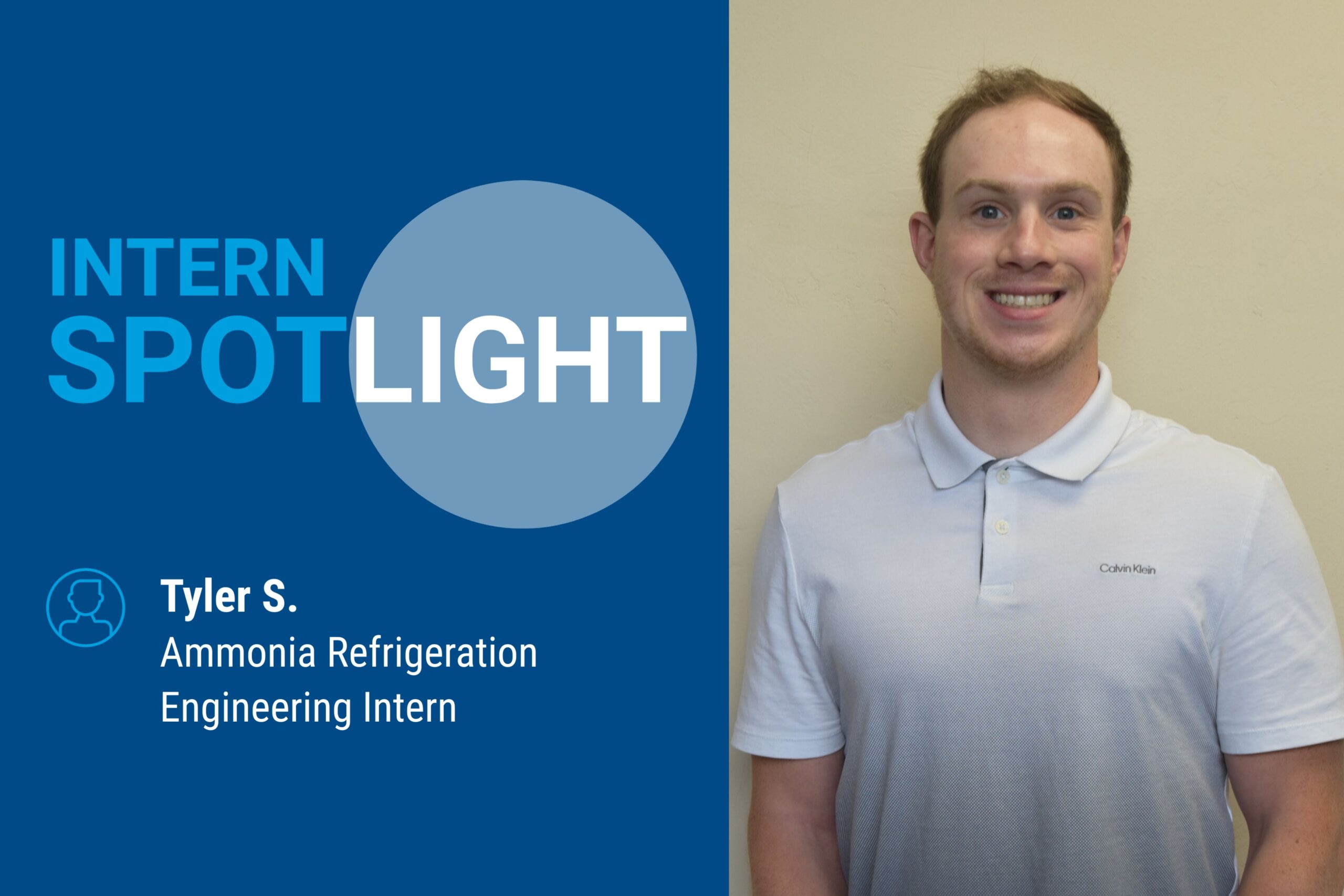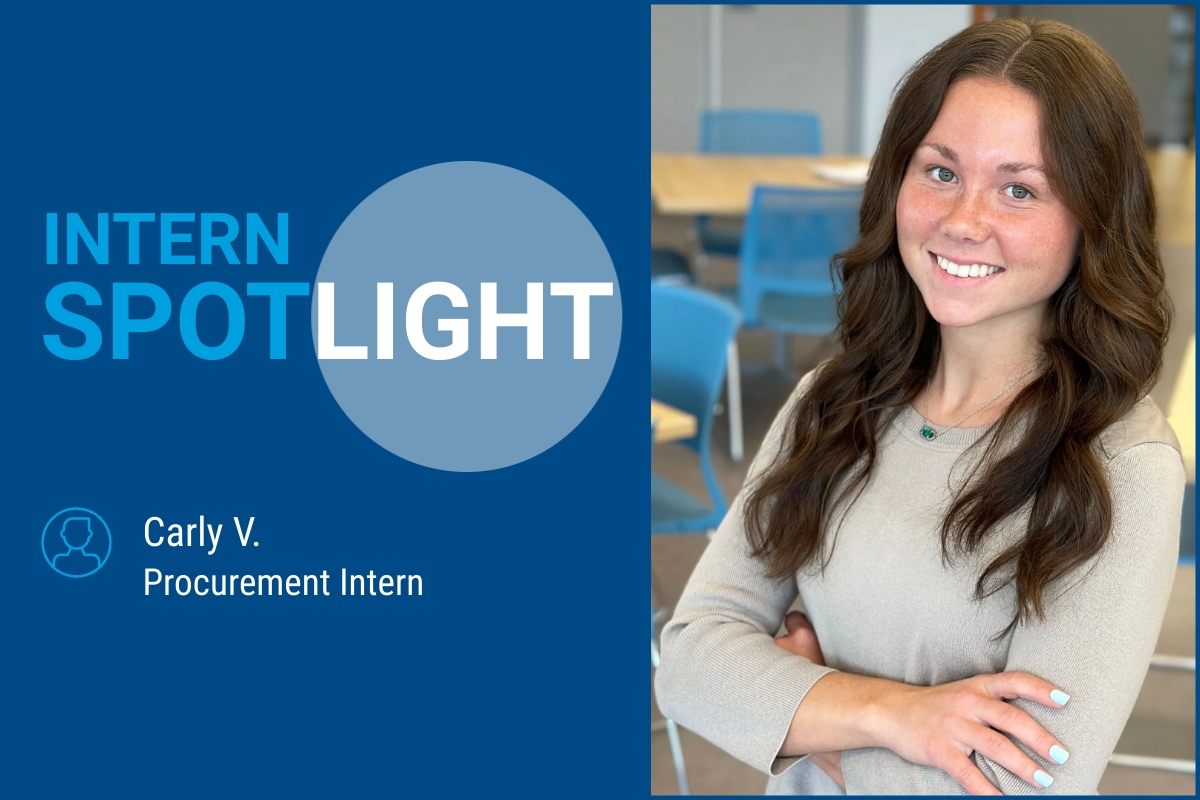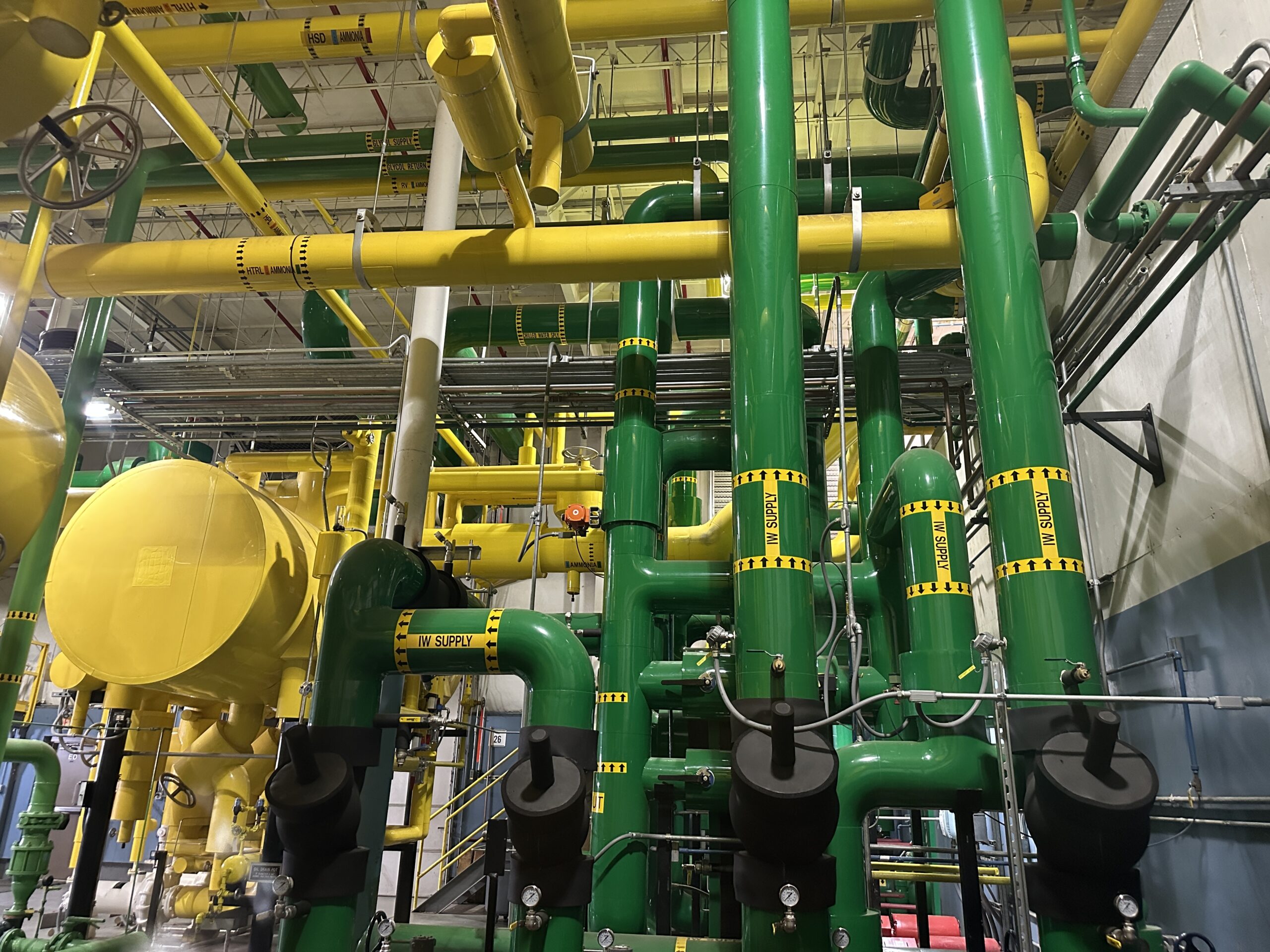This summer, we welcomed Tyler S. to our Bassett Mechanical Family! Tyler joined the team as an Ammonia Refrigeration Engineering intern. We interviewed Tyler to gain insight about him and how his internship prepares him for his engineering career.
Meet Our Intern, Tyler S.
Q: Hi Tyler! Welcome to the Bassett Mechanical Family. Can you tell us about yourself?
A: I am a senior at UW Platteville, graduating with a Mechanical Engineering degree this December. While at school, I am involved with two clubs. The first is SAE (Society of Automotive Engineers) where I am a member of the formula team. The second is ASHRAE (American Society of Heating Refrigeration and Air-Conditioning Engineers), where I serve as the club’s Vice President. As the Vice President, I coordinate meetings, gather materials, and encourage new members to join.
Q: Sounds like you’re really involved at school! What made you want to become an engineer?
A: I always had a driving passion for figuring out how and why things were built and designed. That continued throughout high school, and from there, I chose to pursue a mechanical engineering degree.
Q: Why did you want to pursue an internship at Bassett Mechanical?
A: I wanted to pursue an internship at Bassett because it tied together all my past work experience of working in the field as a fitter and schooling together. It made sense.
Q: What type of projects have and will you be working on this summer?
A: I have been involved with the Thrive Foods project, conducting charge and relief calculations. I have also been tasked with creating a calculator that calculates partial liquid volume in vertical and horizontal vessels and relates that volume to a voltage, which tells a probe how much liquid is in a vessel.
Q: It sounds like a cool project to lead. What are you hoping to achieve from this experience?
A: I want to gain knowledge of Ammonia systems and get a feel for life after college.
Q: What have you learned so far?
A: I have learned a lot about ammonia systems. I was unaware of all the engineering involved in a system’s design. I also have learned a lot about vessels, such as vessel design and probe sensors. Overall, I have learned a lot.
Q: What has been the most rewarding experience as an intern?
A: As of now, the most rewarding thing I experienced was going down to Thrive Foods, where I got to see the site. This was exciting because I spent three weeks doing all the calculations for the job, and seeing the physical site was cool and rewarding, knowing that I contributed a little bit to the job.
Q: Have you encountered any major hurdles, and how did you overcome them?
A: One of the biggest hurdles I have encountered was Covid-19 and how that impacted my college career. I spent almost half of my college experience at home learning online, which was very distracting. To overcome this, I had to keep reminding myself to look at the bigger picture and set goals for myself.
Q: I can imagine COVID was a tough time for you and the other students, but you persevered and will graduate in December. What is your dream job after college?
A: My dream job is one where coming to work every day is not dreaded but rather exhilarating. Getting the opportunity to be challenged and think about why something is being done or developing a new way to do something fuels me. That passion and drive to do remarkable things is what I am pursuing as my dream job.
Q: Who has been a mentor that has impacted your life and career?
A: My dad has been a tremendous help in getting me to where I am today. From an early age, he has constantly pushed me to get involved in the HVAC industry. At seventeen, he sent me down to Little Rock, Arkansas, where I got EPA-certified types I, II, III. Throughout school, he always gave me his input on situations and guidance. He has done a lot for me; I would not be where I am today without him.
Q: What is some advice for people looking to start a career in engineering?
A: I have two pieces of advice for people seeking an engineering career. The first is to be open-minded. Being open-minded in the sense of looking at things from multiple viewpoints. This allows you to see the bigger picture, which can change how something is drawn or produced, creating a better product or result. The second piece of advice is to work hard. Engineering is challenging. There will be many times when you start to question why you are even doing it; however, in the end, it is all worth it.




